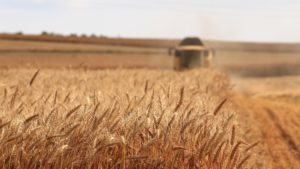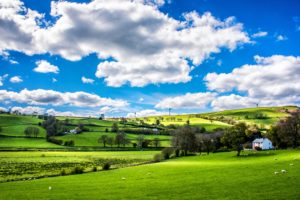Rural life post Brexit – a golden opportunity?
How leaving the EU could allow us to rethink our rural policies…
With seemingly never-ending EU negotiations, life post-Brexit has felt like it may never happen. But as the deadline looms, we can no longer bury our heads in the sand, especially if we live in rural communities.
During the months and months of talks, aside from farming communities, how life might change in rural areas post-Brexit has not really made the headlines. But certainly from March 2019, that’s all set to change, but will it be for the better or worse?
What price the rural landscape?
It’s no secret that life in rural UK is very different to that in the cities – access to healthcare and transport links is limited, shops, pubs and leisure services are closing daily, while the countryside is being ploughed up at a rate of knots to meet EU farming production incentives which means we are losing important wildlife and wild spaces.
Since 1962, farmers have been incentivised by the EU under the Common Agricultural Policy to farm more acres and have been rewarded for mass food production. This has changed our rural landscape so much that The Wildlife Trusts are concerned that the countryside is in danger of being damaged beyond repair with many of our important species becoming extinct in the next few years.
Prince Charles, among others, has argued that the countryside is ‘like a delicately woven tapestry, where land, farmers and communities are inextricably intertwined and may easily unravel’. But in a world where everything has a marketable commodity, how do you put a price on a rural landscape even if it is enjoyed by millions, contributes to a green economy and is vital in supporting our mental and physical well-being?
What does DEFRA think?
One of the post Brexit ideas being muted by the Department for the Environment, Food and Rural Affairs is to incentivise landowners to look after their ‘Natural Capital’, a term coined by Ernst Schumacher in 1973 and which refers to matters relating to the natural environment, including food production, biodiversity, clean water and air as well as cultural heritage.
The proposed new strategy would not prevent farmers from producing crops for profit; rather they would be rewarded for farming more with wildlife in mind – looking after hedges, rivers, birds, butterflies and historical features. In this era of tough negotiations, it’s a win-win.
According to Professor Mark Shucksmith of Newcastle University writing in a post-Brexit paper for ACRE (Action with Communities in Rural England), a post-Brexit deal could also see renewed opportunities for rural businesses and communities.
In his vision, rural businesses would be supported by a strategy that reflected the challenges ‘faced by rural businesses, typically microbusinesses (which are often home-based), addressing skills and training, business support, infrastructure, planning and finance.’
In the same paper, Professor Shucksmith argues that people living in market towns and villages would be privy to the same life opportunities as those living in cities, thanks to an allocation of resources that would reflect the additional costs of delivering services to rural areas. This would allow our villages and market towns to thrive and grow.
Of course, there are always going to be those naysayers who fear change but change is a way of moving forward, and rural policies have been stuck in the mud for too many years. The key to a successful post Brexit outcome is recognising the opportunities it could bring – March 2019 might just prove to be the breath of fresh air that the countryside needs.

